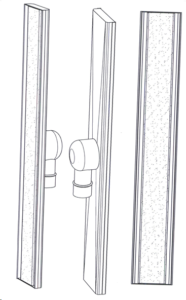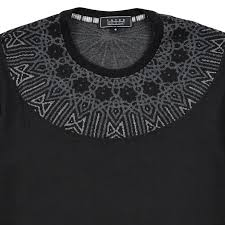On September 21, 2017, the European Court of Justice (CJEU) issued another important decision on designs (joined cases C-361/15 and C-405/15). Among several other issues, possibly the most relevant concerned whether or not the product and the sector to which a design relates affect the assessment of its novelty and individual character.
The case concerned a community design for a “shower drain”, whose invalidity was alleged for lack of novelty and individual character on the basis of an earlier drainage system for industrial use shown in the catalogs of a third company.
RCD n. 000107834-0025 Prior art/earlier product/design
The RCD holder contested the relevance of the earlier prior art. It pointed out the different use of the industrial drain with respect to the shower drain and the different relevant sector. However, EUIPO Invalidity Division declared the RCD invalid, due to lack of novelty.
Upon the RCD holder’s appeal, the Board of Appeal annulled the decision. On appeal the General Court (GC), which inter alia, annulled the BoA’s decision due to erroneous comparison of the designs (T-15/13), held that for novelty purposes the type of product and sector in which the earlier design was incorporated were not relevant, while they were relevant for the individual character since it is after the identification of the type of product that it can be determined whether the informed user could know about the earlier design.
EUIPO and the RCD holder appealed to the CJEU.
The CJEU agreed with the GC that all identical prior designs, even when applied to different types of products and different sectors affect the novelty of a later design. Otherwise, a subsequent RCD holder could prevent the use of the design on the earlier product, which would be a paradoxical result.
The CJEU also “downplayed” the relevance of art. 7(1) of Reg. 2/006 reference to the “circles specialized in the sector concerned”. As the CJEU observed, this phrase is to be interpreted restrictively as it appears in the context of an exception. By citing the travaux préparatoires for Reg. 6/2002, the CJEU clarified that art. 7(1) was just intended to ensure that events that occur outside the EU (i.e. difficult to verify) are not capable of constituting “disclosure”. It was not to make a distinction between various businesses sectors within the EU nor to limit the relevant prior art to certain sectors.
With regard to the individual character, however, the CJEU overruled the GC’s finding that the type of product is relevant, because if the earlier product was disclosed to public, irrespective of the sector, it must be assumed that it is known.
The CJEU apparently endorsed Euipo’s argument in the appeal, that article 7 of Reg. 6/2002 contains a “legal fiction” that every design that has “been made available to the public” is assumed to be generally known. In addition, in its reasoning the CJEU stated that the informed user’s knowledge about an earlier design cannot be considered a necessary condition for preventing recognition of the individual character of a later design.
As the CJEU further observed, the GC’s approach would erroneously require invalidity applicants to prove not only i) disclosure of the earlier design to the public but also ii) the informed user’s knowledge of the earlier design. This latter requirement is not supported by art. 7(1) and would be incompatible with the protection granted by Community designs, which extends to any design irrespective of the type of product and sector of application.
The CJEU’s conclusion was that the same approach should be adopted for the assessment of both novelty and individual character. In light of these decision how would the following cases be decided? Find our answer below, and let us know if you agree.
1.Design for a lighter in a golf ball?
Design applied for prior art
2.Decorative design on a t-shirt (discard the t-shirt shape)?
Design applied for prior art
3.Decorative design of a t-shirt?
Design applied for likely prior art, allegedly manufactured in Suriname
Answers
- No, for lack of novelty
- Most likely not, for lack of individual character
- Most likely yes, both for novelty and individual character, art. 7.1, because even the specialized circles hardly know what’s being sold in Suriname.
_____________________________
To make sure you do not miss out on regular updates from the Kluwer Trademark Blog, please subscribe here.










